With so many electronic tuners available and at affordable prices. There is no reason to be playing out of tune. Always remember you are training you ear and need to feed it accurate information.
- Cases & Gigbags • protect that ukulele from nicks and dings.
- Instrument Cables • a good instrument cable really does make a difference.
- Capos • open position chord in other keys.
- Electronic Tuners • Electronic tuners come in two varieties: LED and Strobe..
- Effects Pedals
- Recording Your Ukulele
- Music Notation & Digital Audio Workstation (DAW) Software
- Direct Boxes
- Pre Amps & Pickups
- Acoustic Amplifiers - These are amplifiers specifically optimize for acoustic instruments
ANY tuning is possible on a ukulele as long as the ukulele's construction supports the required string tension and a string is available . The manufacture or the builder of the ukulele would or should have this string tension information. The string manufacture typically has the tension information for their strings on their respective web sites.
There are three common tunings in popular use today, C, D and G tuning — with C tuning being the most popular.
If coming from the guitar world where the strings, tuned low to high, is often called a linear tuning. An instrument like the ukulele with a higher pitched string four is called a re-entrant tuning where the lowest note of the instrument might not be the lowest string. This can seem a little strange at first. The re-entrant tuning, places all the notes of a chord within one octave, is part of the unique ukulele sound. This tuning is especially common for the smaller soprano and concert ukuleles.
Tuning is one of the aspects of the ukulele that gives it its charm. Or, it's a plot by builders and manufacture to have you buy more ukuleles.

Virginia Schawacker
In this electronic age where you can ask, "Who doesn't make a clip on tuner?". Simply get an electronic tuner or download an app to your smart phone and get in tune.
Here are a few of the software tuners I've used. - The Peterson iStroboSoft is the software tuner I currently use on mu iPhone.
- iStroboSoft - by Peterson Tuners - ( Ed. The most accurate tuners on the market. I use Peterson tuners for all my repair work and live. )
- Cleartune - Chromatic Tuner
- GuitarToolkit - Agile Partners
- PolyTune - TC Electronic
- or - just buy an electronic tuner and get in-tune quickly and accurate.
It is a also good to actually learn to tune by ear. If your ever stranded on a desert island and are without your tuner or have it with you and the battery dies. You need to learn how to tune the ukulele to itself!!!
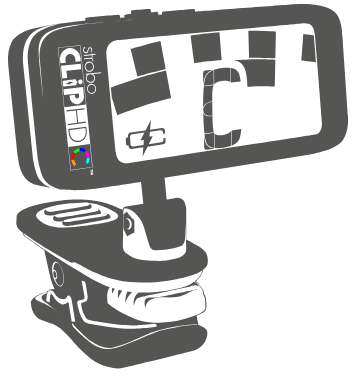
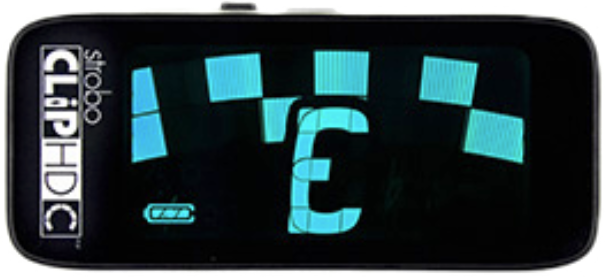
The Peterson StrobeClip HD, D'Adarrio NS Micro Headstock Tuner are my favorite tuners. I the D'Adarrio NS Micro Headstock Tuner on all my performance ukuleles. The new Peterson StroboClip HD is for all other ukes and if I really what super precision when tuning. I really have grown to like strobe tuners.
At our family music store, Funky Frets we carry a the of D'Adarrio Eclipse and Snark clip-on tuners. I clip either the Peterson StrobeCLip HD or one of the D'Adarrio Eclipse tuners on in the morning at home as part of my `Ukulele uniform for the day. The repair and setup bench always has a Peterson StrobePLUS HDC Handheld Tuner / Metronome / Timer fired up
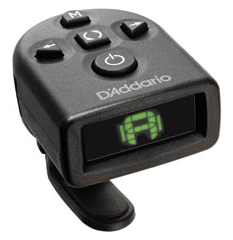
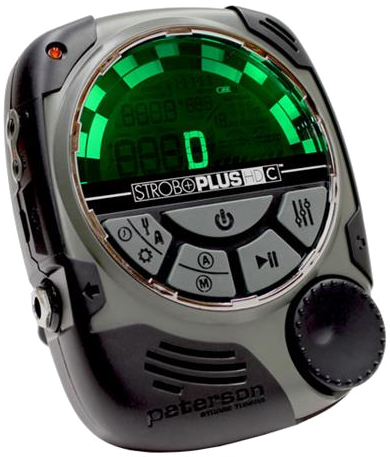
The Micro Headstock Tuners are the go to tuner that I use on ALL my ukuleles for a quick tuning check. — Curt
For more detailed and precise tuning I use the Peterson Strobe Tuners. — Curt
(from Peterson Tuners) If you are new to strobe tuners, you will notice that they are much more sensitive and accurate than your previous tuner. It's OK if the strobe image doesn't completely stop. It may shift slightly due to the 'real-time' speed of a strobe tuner. If you play a stringed instrument, it helps to use your finger or thumb to gently pluck the string instead of a plectrum.


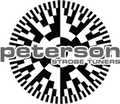
In 1948, 10 years after the invention of the strobe tuner, Chicago-based Peterson Electro-Musical Products began building instrument tuners under the direction of Dick Peterson, a pioneer of solid state electronics. The first Peterson tuner was the Model 150 in 1952. This was updated to become the Model 200 in 1959 and the design was advanced to solid state with the Model 300 in 1966.



In 1994, Howard and Robert Silagy started a small guitar strap company in Hicksville, N.Y. Their approach to business was simple: make attractive, durable straps using high-quality materials and people will buy them. Over the next four years, the company grew, with sales skyrocketing because of the growing popularity of Planet Waves colorful, attractive designs and the line's thick, heavy-duty leather tabs.
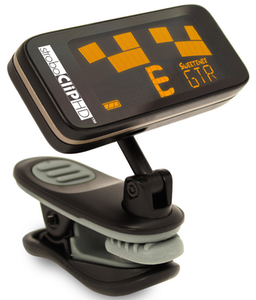

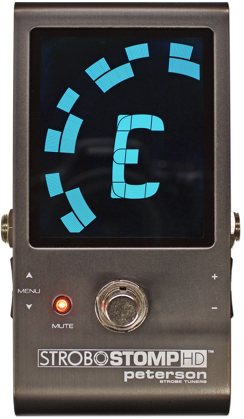


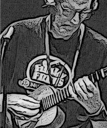
.jpg)